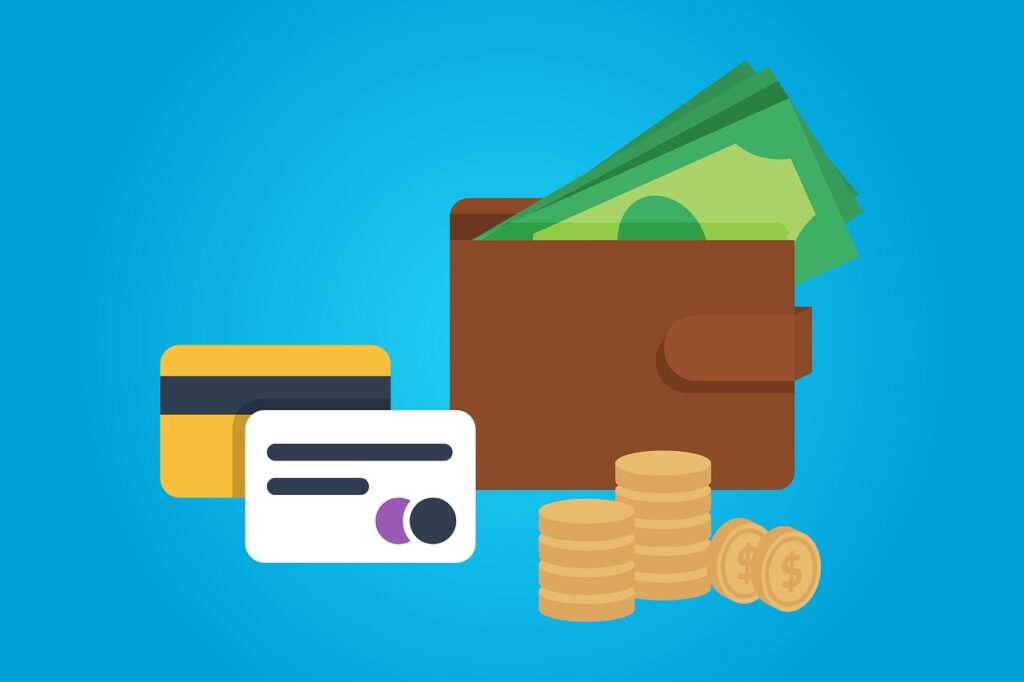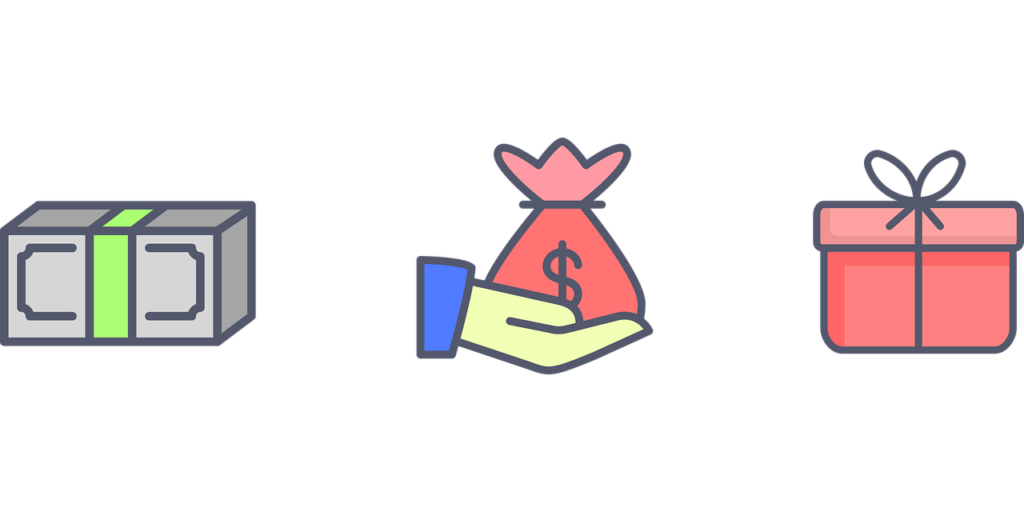Loan Introduction

A loan is a sum of money that is borrowed and is expected to be repaid with interest. The borrower typically agrees to make a series of regular payments to the lender until the loan is fully repaid. The terms of a loan, including the interest rate, the repayment period, and any fees or charges, are typically set forth in a written loan agreement or contract.
Loans can be secured or unsecured. A secured loan is one that is backed by collateral, such as a car or a house. The collateral is pledged as security for the loan, and if the borrower fails to repay the loan as agreed, the lender may be able to seize the collateral to recover the debt. An unsecured loan, on the other hand, is not backed by collateral. Instead, the lender relies on the borrower’s creditworthiness and ability to repay the loan to determine whether to extend credit.
Loans are a common way for individuals and businesses to finance a variety of expenses, including education, home renovations, and starting a business. They can be obtained from banks, credit unions, online lenders, and other financial institutions. It is important to carefully consider the terms of a loan before accepting it, and to make sure that the borrower has the ability to repay the loan as agreed.
Types of loan
There are several types of loans that an individual or business can obtain, including:
- Personal loans: These loans are typically unsecured and are used to finance a variety of expenses, such as home renovations, medical bills, or debt consolidation.
- Mortgage loans: These loans are used to finance the purchase of a home and are secured by the property being purchased.
- Auto loans: These loans are used to finance the purchase of a vehicle and are secured by the vehicle being purchased.
- Student loans: These loans are used to finance education and are often offered by the government or educational institutions.
- Business loans: These loans are used to finance the start-up or expansion of a business. They can be secured or unsecured, depending on the lender’s requirements.
- Payday loans: These are small, short-term loans that are typically unsecured and are used to cover expenses until the borrower’s next payday. These loans often have high interest rates and should be used with caution.
- Credit card loans: These loans are obtained by using a credit card to make purchases or withdraw cash. They are typically unsecured and have a variable interest rate.
It is important to carefully consider the terms of a loan before accepting it, including the interest rate, repayment period, and any fees or charges. Borrowers should also ensure that they have the ability to repay the loan as agreed.
Personal Loan

A personal loan is a type of unsecured loan that is typically used to finance a variety of expenses, such as home renovations, medical bills, or debt consolidation. Personal loans are offered by banks, credit unions, online lenders, and other financial institutions, and they can have fixed or variable interest rates.
To apply for a personal loan, you will typically need to provide the lender with information about your income, employment, credit history, and debts. The lender will use this information to determine your creditworthiness and whether to approve your loan application.
If you are approved for a personal loan, you will typically be required to sign a loan agreement or contract that outlines the terms of the loan, including the interest rate, repayment period, and any fees or charges. You will then be required to make regular payments to the lender until the loan is fully repaid.
It is important to carefully consider the terms of a personal loan before accepting it, and to make sure that you have the ability to repay the loan as agreed. If you are having difficulty making your loan payments, you should contact the lender as soon as possible to discuss your options.
Mortgage loans
A mortgage loan is a type of loan that is used to finance the purchase of a home. The loan is secured by the property being purchased, which means that if the borrower fails to repay the loan as agreed, the lender may be able to seize the property to recover the debt.
To obtain a mortgage loan, the borrower must typically have a down payment of at least 5% of the purchase price of the home and a good credit score. The lender will also consider the borrower’s income, debts, and employment history when deciding whether to approve the loan.
There are several types of mortgage loans, including:
- Fixed-rate mortgages: These loans have an interest rate that remains the same for the life of the loan.
- Adjustable-rate mortgages (ARMs): These loans have an interest rate that can change over time, based on market conditions.
- FHA loans: These loans are backed by the Federal Housing Administration and are available to borrowers who may not qualify for a traditional mortgage.
- VA loans: These loans are available to military service members and veterans and are backed by the Department of Veterans Affairs.
It is important to carefully consider the terms of a mortgage loan before accepting it, including the interest rate, repayment period, and any fees or charges. Borrowers should also ensure that they have the ability to repay the loan as agreed.
Auto loan
An auto loan is a type of loan that is used to finance the purchase of a vehicle. The loan is secured by the vehicle being purchased, which means that if the borrower fails to repay the loan as agreed, the lender may be able to seize the vehicle to recover the debt.
To obtain an auto loan, the borrower must typically have a down payment of at least 10% of the purchase price of the vehicle and a good credit score. The lender will also consider the borrower’s income, debts, and employment history when deciding whether to approve the loan.
Auto loans can have fixed or variable interest rates, and the repayment period can range from 36 to 72 months, depending on the lender and the borrower’s creditworthiness.
It is important to carefully consider the terms of an auto loan before accepting it, including the interest rate, repayment period, and any fees or charges. Borrowers should also ensure that they have the ability to repay the loan as agreed. If you are having difficulty making your loan payments, you should contact the lender as soon as possible to discuss your options.
Student loan

A student loan is a type of loan that is used to finance education. Student loans can be obtained from the government, educational institutions, or private lenders.
There are two main types of student loans: federal student loans and private student loans. Federal student loans are backed by the government and are typically offered to students who demonstrate financial need. They have fixed interest rates and may offer flexible repayment options, such as income-driven repayment plans. Private student loans, on the other hand, are offered by banks, credit unions, and other financial institutions and are not backed by the government. They typically have variable interest rates and may have less flexible repayment options.
To apply for a student loan, you will typically need to complete a Free Application for Federal Student Aid (FAFSA) form and provide the lender with information about your education and financial situation. The lender will use this information to determine your eligibility for a loan and the terms of the loan.
It is important to carefully consider the terms of a student loan before accepting it, including the interest rate, repayment period, and any fees or charges. Borrowers should also ensure that they have the ability to repay the loan as agreed. If you are having difficulty making your loan payments, you should contact the lender as soon as possible to discuss your options.
Business loan
A business loan is a type of loan that is used to finance the start-up or expansion of a business. Business loans can be secured or unsecured, depending on the lender’s requirements. A secured business loan is one that is backed by collateral, such as a business owner’s personal assets or the business’s assets. An unsecured business loan is not backed by collateral and is based on the creditworthiness of the business.
To apply for a business loan, you will typically need to provide the lender with information about your business, including financial statements, a business plan, and a credit history. The lender will use this information to determine your creditworthiness and whether to approve your loan application.
There are several types of business loans, including:
- Term loans: These loans have a fixed repayment period and are typically used to finance the purchase of assets or equipment.
- Lines of credit: These loans allow businesses to borrow money as needed and make payments as they go.
- Invoice financing: This type of loan allows businesses to borrow money based on the value of their unpaid invoices.
- SBA loans: These loans are backed by the Small Business Administration and are available to small businesses that may not qualify for traditional loans.
It is important to carefully consider the terms of a business loan before accepting it, including the interest rate, repayment period, and any fees or charges. Borrowers should also ensure that they have the ability to repay the loan as agreed. If you are having difficulty making your loan payments, you should contact the lender as soon as possible to discuss your options.

Payday loan
A payday loan is a type of short-term, unsecured loan that is typically used to cover expenses until the borrower’s next payday. Payday loans are often advertised as a way to get quick access to cash in an emergency, but they can be very expensive and should be used with caution.
To obtain a payday loan, you will typically need to provide the lender with proof of income and a post-dated check or authorization to debit your bank account on your next payday. The lender will then advance you the loan amount, minus any fees or charges.
Payday loans have high interest rates and fees, and they are typically due in full on the borrower’s next payday. If the borrower is unable to repay the loan as agreed, they may be charged additional fees and may have to extend the loan, which can lead to a cycle of debt.
It is important to carefully consider the terms of a payday loan before accepting it, and to make sure that you have the ability to repay the loan as agreed. If you are having difficulty making your loan payments, you should contact the lender as soon as possible to discuss your options. In some cases, it may be possible to negotiate a payment plan or seek assistance from a non-profit credit counseling agency.

Credit card loan
A credit card loan is a type of unsecured loan that is obtained by using a credit card to make purchases or withdraw cash. Credit card loans have a variable interest rate, which means that the interest rate can change over time based on market conditions.
To obtain a credit card loan, you will need to have a credit card that allows you to borrow money and a good credit score. You can use your credit card to make purchases or withdraw cash from an ATM, and the lender will charge you interest on the amount that you borrow.
It is important to carefully consider the terms of a credit card loan before using your credit card to borrow money. Credit card interest rates can be high, and if you are unable to pay off your balance in full each month, you may end up paying more in interest than you borrowed. It is also important to make sure that you have the ability to repay the loan as agreed. If you are having difficulty making your credit card payments, you should contact the lender as soon as possible to discuss your options.
Loan system in India
In India, loans are offered by a variety of financial institutions, including banks, non-banking financial companies (NBFCs), and microfinance institutions. The loan system in India is regulated by the Reserve Bank of India (RBI), which sets guidelines for the lending practices of financial institutions.
In India, loans can be secured or unsecured. A secured loan is one that is backed by collateral, such as a car or a house. An unsecured loan is not backed by collateral and is based on the borrower’s creditworthiness.
There are several types of loans that are commonly available in India, including:
- Personal loans: These loans are used to finance a variety of expenses, such as home renovations, medical bills, or debt consolidation.
- Home loans: These loans are used to finance the purchase or construction of a home and are secured by the property being purchased.
- Auto loans: These loans are used to finance the purchase of a vehicle and are secured by the vehicle being purchased.
- Education loans: These loans are used to finance education and are often offered by banks and other financial institutions.
- Business loans: These loans are used to finance the start-up or expansion of a business and can be secured or unsecured.
It is important to carefully consider the terms of a loan before accepting it, including the interest rate, repayment period, and any fees or charges. Borrowers should also ensure that they have the ability to repay the loan as agreed.
Loan Interests
Interest is the cost of borrowing money, and it is usually expressed as a percentage of the amount borrowed. When you take out a loan, you agree to pay back the principal amount, plus an additional amount in interest. The interest rate on a loan is the percentage of the principal that you will be charged in interest.
There are two main types of interest: simple interest and compound interest. Simple interest is calculated based on the principal amount of the loan and the length of time that the loan is outstanding. Compound interest is calculated based on the principal amount of the loan, the length of time that the loan is outstanding, and the frequency of compounding, which is the number of times per year that interest is added to the principal.
Interest rates can be fixed or variable. A fixed interest rate is one that remains the same for the life of the loan. A variable interest rate is one that can change over time, based on market conditions.
It is important to carefully consider the interest rate on a loan before accepting it, as a high interest rate can significantly increase the overall cost of the loan. Borrowers should also consider the repayment period and any fees or charges that may be associated with the loan.
Loan system in United States

In the United States, loans are offered by a variety of financial institutions, including banks, credit unions, online lenders, and other financial institutions. The loan system in the United States is regulated by the Consumer Financial Protection Bureau (CFPB), which sets guidelines for the lending practices of financial institutions.
In the United States, loans can be secured or unsecured. A secured loan is one that is backed by collateral, such as a car or a house. An unsecured loan is not backed by collateral and is based on the borrower’s creditworthiness.
There are several types of loans that are commonly available in the United States, including:
- Personal loans: These loans are used to finance a variety of expenses, such as home renovations, medical bills, or debt consolidation.
- Mortgage loans: These loans are used to finance the purchase or refinance of a home and are secured by the property being purchased.
- Auto loans: These loans are used to finance the purchase of a vehicle and are secured by the vehicle being purchased.
- Student loans: These loans are used to finance education and are often offered by the government or educational institutions.
- Business loans: These loans are used to finance the start-up or expansion of a business and can be secured or unsecured.
It is important to carefully consider the terms of a loan before accepting it, including the interest rate, repayment period, and any fees or charges. Borrowers should also ensure that they have the ability to repay the loan as agreed.
How to get a loan?

To get a loan, you will typically need to follow these steps:
- Determine your borrowing needs: Consider the purpose of the loan and the amount of money that you need to borrow.
- Shop around: Compare loan offers from different lenders to find the best terms and rates.
- Check your credit score: Your credit score is an important factor that lenders consider when deciding whether to approve your loan application. Check your credit score and credit report to ensure that there are no errors and to see where you stand.
- Gather necessary documents: Different lenders may require different documents, but you will typically need to provide proof of income, employment, and identification.
- Complete a loan application: Submit a loan application to the lender of your choice, including all required documents and information.
- Wait for a decision: The lender will review your application and decide whether to approve or deny your loan. If your loan is approved, you will typically receive a loan agreement or contract outlining the terms of the loan.
- Review the loan agreement: Carefully review the loan agreement to make sure that you understand the terms and conditions of the loan.
- Accept the loan: If you agree to the terms of the loan, sign the loan agreement and return it to the lender.
It is important to carefully consider the terms of a loan before accepting it, including the interest rate, repayment period, and any fees or charges. Borrowers should also ensure that they have the ability to repay the loan as agreed. If you are having difficulty making your loan payments, you should contact the lender as soon as possible to discuss your options.
Conclusion

In conclusion, a loan is a sum of money that is borrowed and is expected to be repaid with interest. There are several types of loans that individuals and businesses can obtain, including personal loans, mortgage loans, auto loans, student loans, business loans, payday loans, and credit card loans. Each type of loan has its own terms and conditions, and it is important to carefully consider these terms before accepting a loan. To get a loan, you will typically need to determine your borrowing needs, shop around for the best terms and rates, check your credit score, gather necessary documents, complete a loan application, wait for a decision, and review and accept the loan agreement. It is important to carefully consider the terms of a loan before accepting it, including the interest rate, repayment period, and any fees or charges. Borrowers should also ensure that they have the ability to repay the loan as agreed. If you are having difficulty making your loan payments, you should contact the lender as soon as possible to discuss your options.

